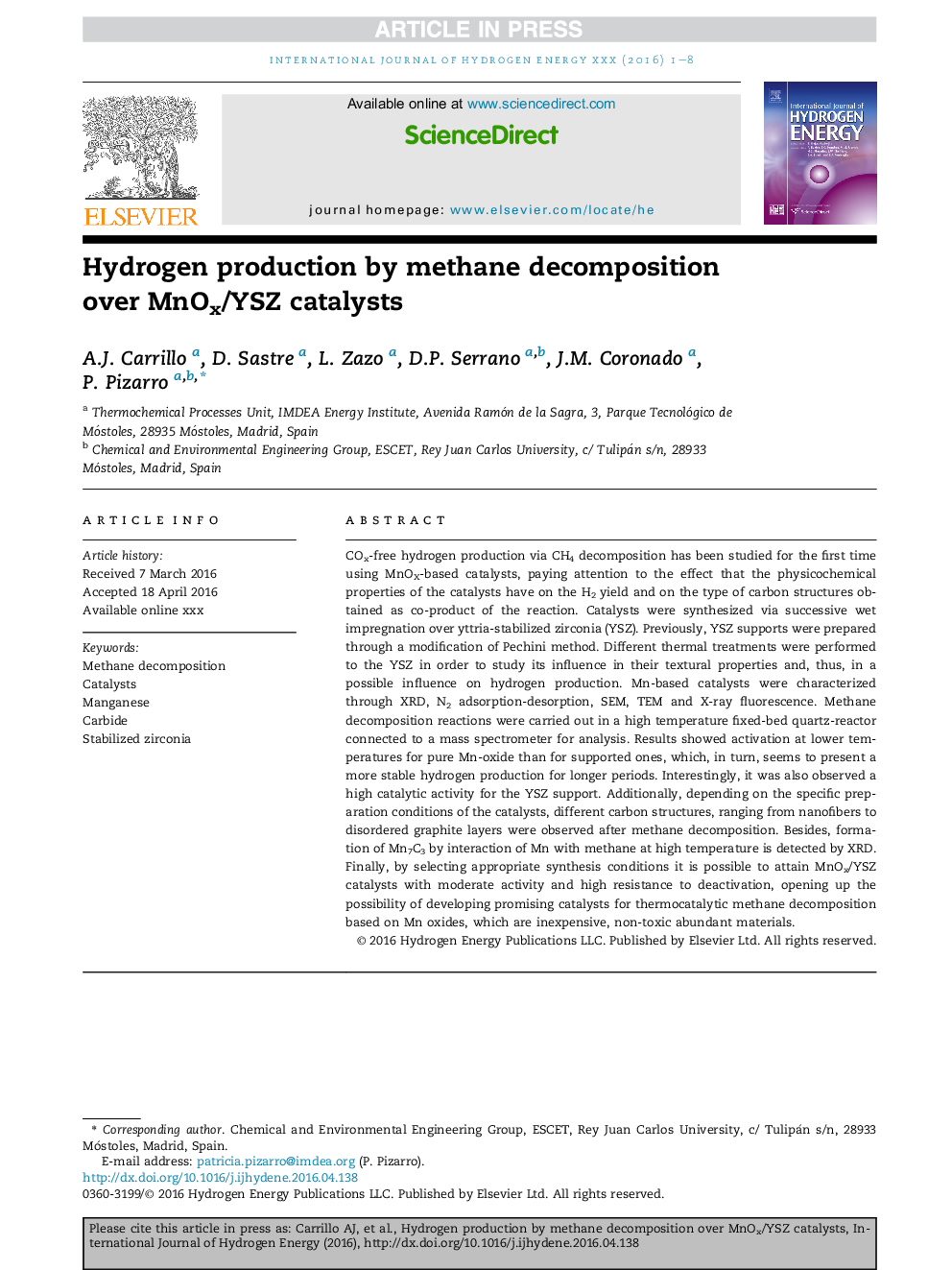| Article ID | Journal | Published Year | Pages | File Type |
|---|---|---|---|---|
| 5147188 | International Journal of Hydrogen Energy | 2016 | 8 Pages |
Abstract
COx-free hydrogen production via CH4 decomposition has been studied for the first time using MnOX-based catalysts, paying attention to the effect that the physicochemical properties of the catalysts have on the H2 yield and on the type of carbon structures obtained as co-product of the reaction. Catalysts were synthesized via successive wet impregnation over yttria-stabilized zirconia (YSZ). Previously, YSZ supports were prepared through a modification of Pechini method. Different thermal treatments were performed to the YSZ in order to study its influence in their textural properties and, thus, in a possible influence on hydrogen production. Mn-based catalysts were characterized through XRD, N2 adsorption-desorption, SEM, TEM and X-ray fluorescence. Methane decomposition reactions were carried out in a high temperature fixed-bed quartz-reactor connected to a mass spectrometer for analysis. Results showed activation at lower temperatures for pure Mn-oxide than for supported ones, which, in turn, seems to present a more stable hydrogen production for longer periods. Interestingly, it was also observed a high catalytic activity for the YSZ support. Additionally, depending on the specific preparation conditions of the catalysts, different carbon structures, ranging from nanofibers to disordered graphite layers were observed after methane decomposition. Besides, formation of Mn7C3 by interaction of Mn with methane at high temperature is detected by XRD. Finally, by selecting appropriate synthesis conditions it is possible to attain MnOx/YSZ catalysts with moderate activity and high resistance to deactivation, opening up the possibility of developing promising catalysts for thermocatalytic methane decomposition based on Mn oxides, which are inexpensive, non-toxic abundant materials.
Related Topics
Physical Sciences and Engineering
Chemistry
Electrochemistry
Authors
A.J. Carrillo, D. Sastre, L. Zazo, D.P. Serrano, J.M. Coronado, P. Pizarro,
